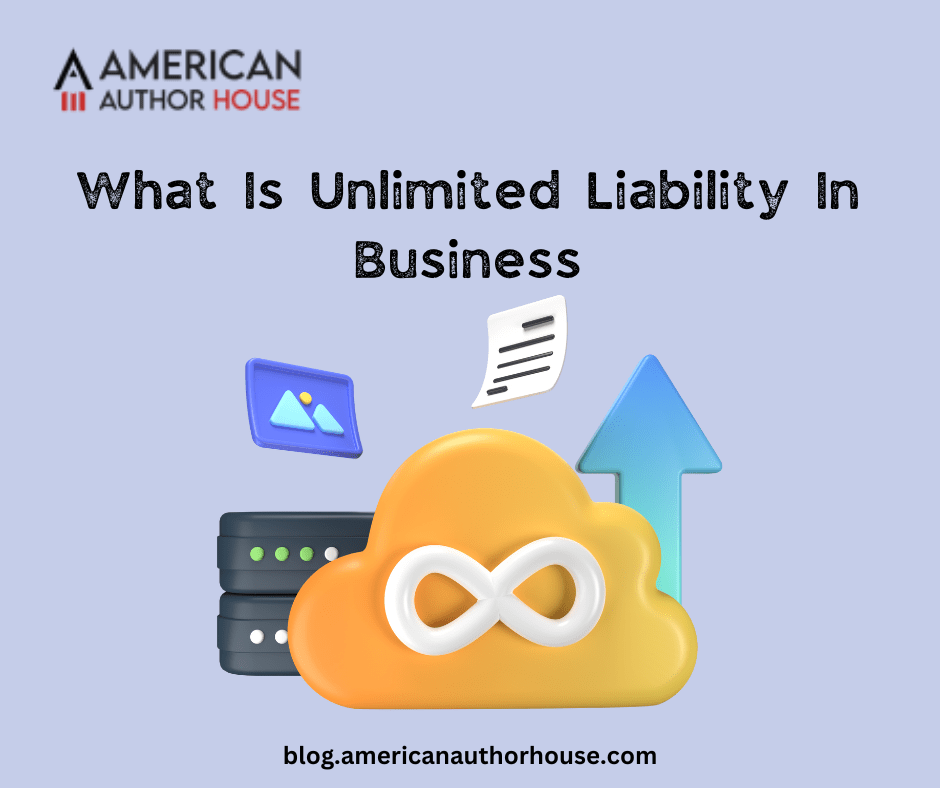
Book
What Is Unlimited Liability?
Unlimited liability means that the owners and partners of a business are legally responsible for all of the business’s debts. To learn more about different business structures, including unlimited liability, you can check our article on “How to Register a Business – A Step-by-Step Guide to Formalizing Your Venture”. This liability isn’t limited, so debts can be paid by seizing and selling the owners’ personal property. This isn’t as safe as the popular limited liability business structure protecting the owners.
When A Business Faces Unlimited Liability
Most people have heard of a limited liability company, often called an ‘LLC.’ Limited liability companies are a popular choice for protecting personal assets. Learn more about the advantages of LLCs in our article “Cost of Publishing a Book – Understanding the Financial Aspects of Publishing”. This is because it is more popular than unlimited liability when protecting the business owners’ and shareholders’ personal assets. Incorporating as an LLC means that only the business’s capital and investments are at risk.
Even though it might seem like the obvious choice, a company might choose to move forward as an unlimited liability company for one main reason: there are no disclosure requirements. This means no public reports about how much money comes into or leaves the business.

Many businesses are automatically considered to have unlimited liability. Single-person businesses, such as sole traders, have unlimited liability. In other words, the person who started the business is responsible for its debts until they choose to incorporate.
Unlimited liability vs. limited liability
Limited liability businesses are a common way to run a business because they protect the owners and partners from some of the financial responsibility of the business.
The business becomes separate from the owners’ or partners’ personal accounts by choosing a limited liability structure. It helps keep your bank accounts and your assets and debts separate.
Unlimited liability means that all owners and shareholders are responsible for the business’s debts if it goes out of business or settles any legal proceedings (like a lawsuit because an employee got hurt on the job).
In the event of a loss, any money from the business and any personal assets that could help pay off the debt would be taken.
Advantages Of Unlimited Liability
Ease in Establishment and Governance
Explore the pros and cons of unlimited liability and find out if it’s the right choice for your business in our article on “Art of Business Planning – A Comprehensive Guide on How to Write a Business Plan”. Going into business? You’ll probably have an easier time if you’re thinking about unlimited liability. Usually associated with sole proprietorships or general partnerships, these types of businesses are easy to set up. You can avoid paying big fees to sign up, getting buried in paperwork, and getting lost in the maze of corporate rules, like board meetings.
Absolute Authority in Operations
Remember how crazy it gets when everyone has a say? Well, this is usually not a problem for businesses with unlimited liability. The owner, or maybe a small group of partners, is still in charge. Decisions are made more quickly, and everyone feels they have a direct hand in every operation.
Possible Taxation Perks
Ah, taxes. They are always a problem for businesses. But there could be a bright side to having no limits on liability. Profits are often taxed at the owner’s rate, which might be better than what corporations have to deal with. Also, a bad business year might not be all bad. Business losses might cancel out other income, which could lower the dreaded tax bill.
A Personalized Business Approach
Have you ever loved that café where the owner already knows what you want? Businesses with unlimited liability often thrive on these kinds of personal interactions. Direct relationships with clients mean that services are tailored to each person’s needs, making for a strong bond.
Agility in Strategy Alteration
Both life and business are unpredictable. If a plan isn’t working, structures with unlimited liability can change direction without dealing with much paperwork. Change is less of a long process than a quick thing to do.
Disadvantages of Unlimited Liability
Risk to Personal Belongings
Where do personal and business matters meet? In this setting, it’s hard to tell. If the business hits a financial iceberg, personal assets aren’t just at risk but in the front line. This could mean the owner’s home, a car they love, or money saved for their child’s college could be taken to pay off business debts.
Obstacles in Securing Investment
For businesses with “unlimited liability,” raising money can be a Herculean task. It can be hard to get money without shares to offer investors and the risk of selling personal assets. Due to the risks, traditional financial institutions might be worried.
Amplified Levels of Stress
When you mix business worries with worries about your assets, you can make a potent stress cocktail. Challenges don’t stay “business issues”; they seep into our personal lives and make us worry more and lose sleep.
Issues with Business Perpetuity
A business with unlimited liability can be as hard to plan for as a roller coaster. The business could fail if the main owner retires or the partners decide to separate. There’s a chance that the whole thing might have to end, which would affect employees, clients, and other interested parties.
Constraints on Expansion
Given unlimited liability risks and money problems, many business owners may play it safe. Stability is good, but being too careful can cut the business’s wings, making it less likely to grow and fly.
Unlimited Liability vs. Joint Stock
In the U.S., an unlimited liability company is like a joint-stock company (JSC) because shareholders are responsible for all the company’s debts. JSCs work in New York and Texas under the Texas Joint-Stock Company/Revocable Living Trust model and in other states.
The main differences between this model and a general partnership are that shareholders don’t have limited liability, the company is created through a private contract that makes it a separate entity, and one shareholder can’t bind another shareholder in terms of liability because they are all equally responsible.
Example of Liability Without Limits
A person puts $50,000 into a single-person-owned American Author House. The one-person business then gets $200,000 worth of debts. Even though the person only put $50,000 into the business, he is responsible for the whole $200,000. A creditor could legally take the person’s assets to pay off the business’s debts.
Key Characteristics and Profound Details
| Topic | Description (Summarized Points) | Relevant Article Section |
|---|---|---|
| What Is Unlimited Liability? | Unlimited liability implies full legal responsibility of business owners for all debts, including personal assets. | Introduction |
| When A Business Faces Unlimited Liability | Explanation of why businesses might choose unlimited liability despite the risks. | When A Business Faces Unlimited Liability |
| Unlimited Liability vs. Limited Liability | Comparison of unlimited and limited liability in terms of financial responsibility and asset protection. | Unlimited liability vs. limited liability |
| Advantages Of Unlimited Liability | Benefits such as ease of setup, absolute authority, possible tax perks, personalized approach, and agility. | Advantages Of Unlimited Liability |
| Disadvantages of Unlimited Liability | Risks including loss of personal assets, investment challenges, increased stress, issues with perpetuity, and constraints on expansion. | Disadvantages of Unlimited Liability |
| Unlimited Liability vs. Joint Stock | Differences between unlimited liability companies and joint-stock companies in the U.S. | Unlimited Liability vs. Joint Stock |
| Example of Liability Without Limits | A hypothetical scenario illustrating the implications of unlimited liability. | Example of Liability Without Limits |
Conclusion
For further insights into different business structures and making the right choices, business owners should explore our articles on “How to Get a Book Published – Navigating the Traditional Publishing Route” and “How to Write a Biography About Yourself”



